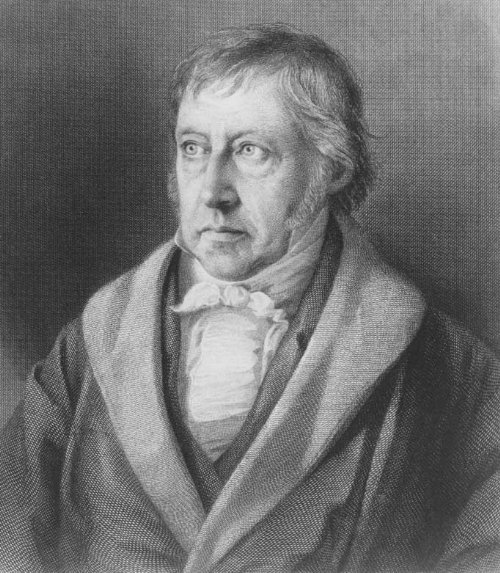Today is Hegel‘s birthday (1770-1831). He is simultaneously one of the most influential, widely cited philosophers and also one of the most daunting. Frye says in an interview with Imre Salusinszky in Criticism in Society that he enjoyed reading Hegel and was quite moved by the experience. He doesn’t mention that he first read (and seems to have wholly absorbed) Hegel at the age of 20. Here are a couple of selections on Hegel from Frye’s student essays written in the early 1930s:
The connection of Hegel with romanticism rests chiefly on Hegel’s own conception of the Zeitgeist as symbolic of the inner unity of the time-problem. He disliked romanticism because its idealism did not press forward into reality. His own chief interest, as well as his interest for posterity, centres on the strong impulse to unify and cohere to the spiritual side of life into a conception sufficiently clear to be recognized as the driving force of material. He wanted the idea to penetrate the innermost interstices of reality; and in this he revolted against romanticism because he attempted what they desired but shirked. He started out with Schelling, attacking earlier critical philosophers, notably Kant and Fichte, because their approach had destroyed the systematization resultant from the matching of subject with object. Like the romantics, he was necessarily a subjectivist critic; yet he hated subjectivity because he faced out to the world-as-idea and was bent on its idealistic conquest, a process easily ruined by introspection. Then he broke with Schelling because of the arbitrary and formalized schemata of that philosopher, which represented to him an immature and hasty jumping at conclusions. He wanted to realize idealism and idealize reality, and no one can attempt this without in some measure being answerable to the charge, when the approach is made from the ideal side, of having butchered facts to make a theorist’s holiday. (“Romanticism,” CW 3, 41-2)

